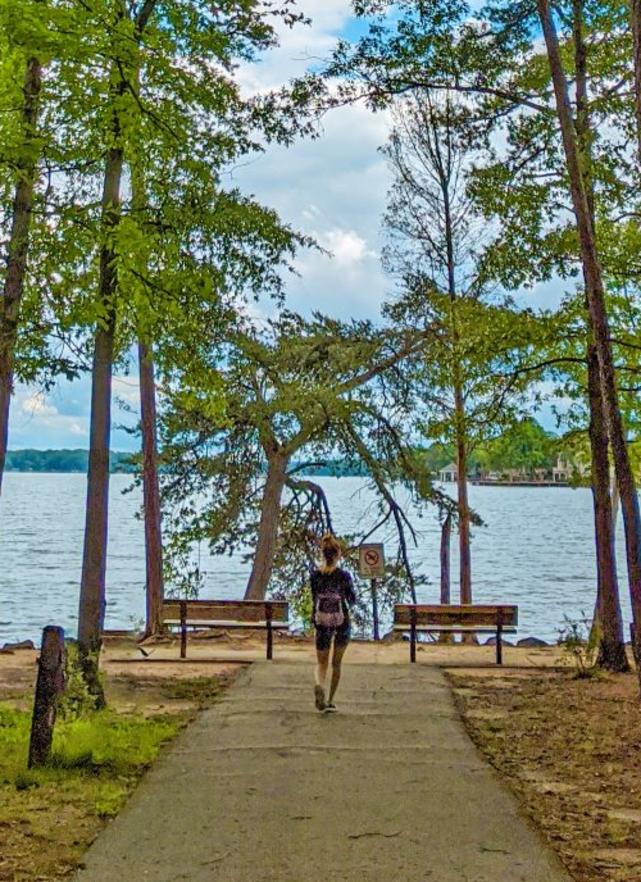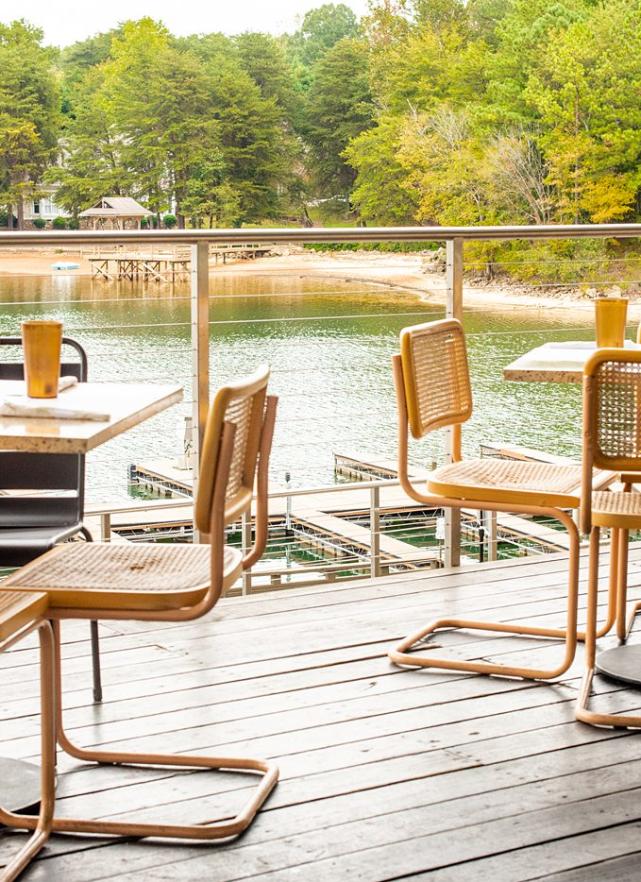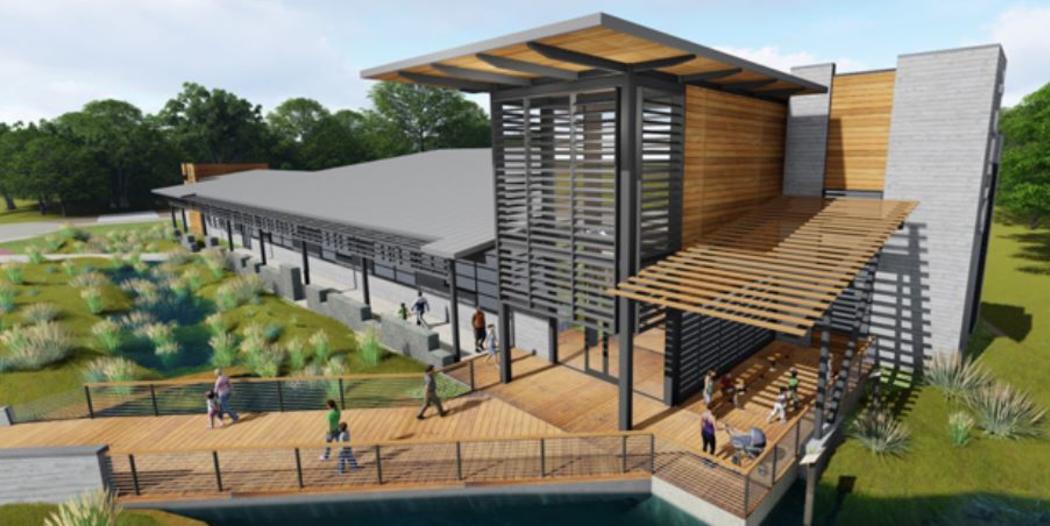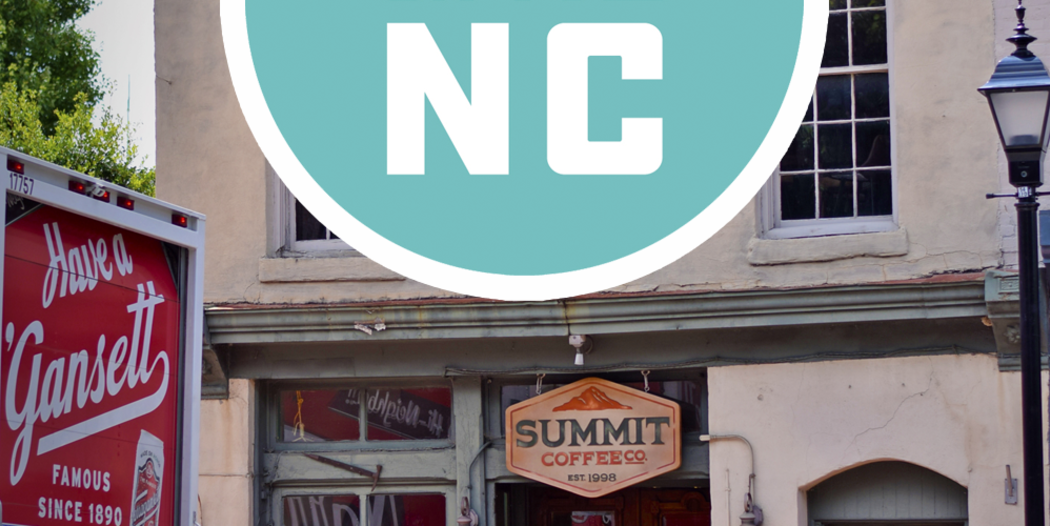When someone visits Lake Norman, taking a trip to the Historic Latta Plantation is a must-do in your list of activities. Whether you have visited once or multiple times, there's more to the historical home than people imagine. We had a virtual Q&A with Board Chair, Kristin Toler, who's been with the Latta Plantation for several years to get a deeper look at one of Lake Norman's popular attractions.
Could you briefly summarize what Historic Latta Plantation (HLP) is and does in your own words?
The Historic Latta Plantation is a non-profit, circa 1800 historic site and living history farm. We serve 40,000 visitors per year with tours of the historic Latta home, special events, workshops, summer camps, and school programs. We seek to life, the history of the North Carolina back country during the 18th and 19th centuries.
How did you become involved with HLP?
I became involved with Latta when I was 18 years old. I was born and raised in North Mecklenburg. I volunteered at Latta beginning at age 18, interned there during college, and returned there to work full-time after college, in 2003. Since then I have been a Historic Interpreter, the Education Director, the Executive Director, and now serve in a volunteer role as the Board Chair.
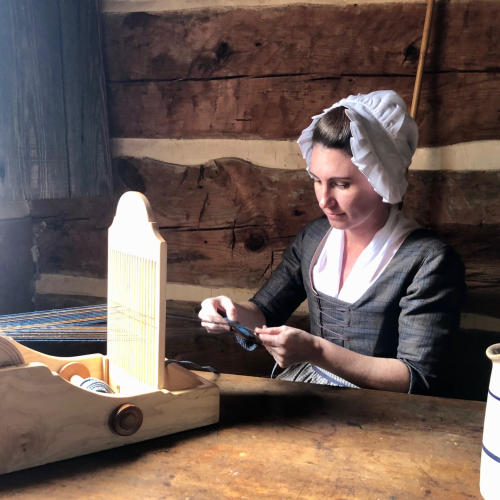
Kristin Toler
What does HLP mean to you?
Historic Latta Plantation represents the story of those who settled and lived in the Carolina back country. It is truly a historic gem in North Mecklenburg, as it is the last remaining Catawba River Plantation open to the public.
How do you plan to grow HLP and the events held there?
Prior to COVID-19, Latta was working hard and successful at growing as an organization and expanding community programming. Our largest fundraiser of the year, The Latta Plantation Celtic Festival, was scheduled for March 16-17. However, due to COVID-19 restrictions, we had to postpone the event. Since then we have also had to postpone the Latta Easter egg Hunt, cancel all school field trips, and close to the public.
Is there an educational program that you would like to highlight, and could you describe it?
Latta offers many educational programs, but one specifically unique in this area, is Life on the Farm. Latta is home to several historic breeds of livestock, some of which are on the threatened and endangered lists with the American Livestock Breeds Conservancy. Life on the Farm not only shows school students what life was like for most settlers of the Carolina Backcountry, it also teaches them about the necessity of animals on a farm, and the importance of preserving the historic breeds that call Latta home.
Could you tell me about a member on the HLP team?
Our Farm Manager is currently the only staff member at Latta during the COVID-19 closure. He is at the site 7 days per week, caring for the livestock, including three Cotswold lambs born here this spring. One of those lambs was orphaned, so Mr. Holmes takes that lamb home each night to bottle feed and care for it. Ken has been on staff at Latta since 2002. His knowledge in raising and caring for historic breeds, early American woodworking, blacksmithing, and split rail fence building, are extremely valuable to Latta and to the public. He has interpreted NC farm and plantation history to hundreds of thousands of visitors during his 18 years at Latta.
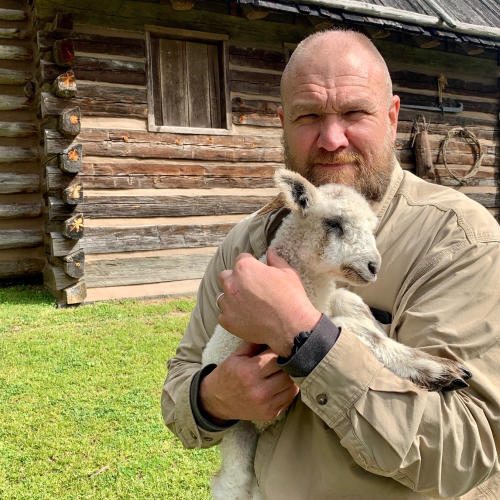
Farm Manager, Ken
How can people who are interested engage with HLP? Any new virtual initiatives due to COVID-19?
Normally, we would encourage you to visit Latta for a daily tour or special event, and support the site by purchasing a Membership. Since we are closed to the public, you can engage with us virtually! You can do this by following us on social media on Facebook and Instagram and also by visiting our website. Since we are closed to the public, we have also begun an online learning series, free to the public, called 'Latta Learning.' This series is available on our website and so is our gift shop!
What do you like best about HLP and what is your favorite thing to do there?
What I love best about Latta is that we are protected by the Latta Nature Preserve, which enables visitors to truly feel that they have stepped into the past when they walk up on site. I have served many roles at Latta over the years, but my favorite is talking to the public and demonstrating 18th and 19th century life skills in the Carolina backcountry, such as open-hearth cooking, tape weaving, hand sewing, and conducting tours.
Could you tell me about any of the animals at HLP?
The animals at Latta include turkeys, chickens, hogs, a donkey, a cow, and many sheep. These animals are used for educational programming and add to the setting of the site because they are all animals that would be found on an early Mecklenburg farm or plantation.
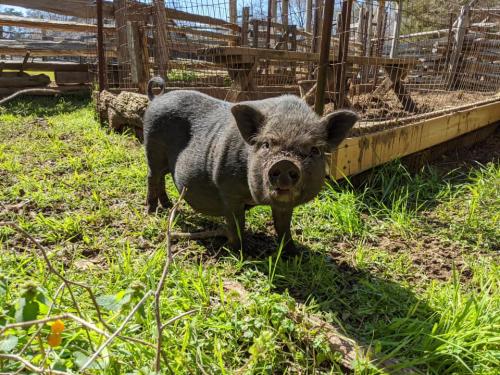
Boots, female Guinea Hog
What is something that you find people don’t really know about the Historic Latta Plantation?
Due to the COVID-19 closure, we are surviving on donations and relying completely on community support to keep our organization going. We look forward to the conclusion of this crisis and bringing back our amazingly talented staff members, who bring history to life for visitors of all ages, every single day.
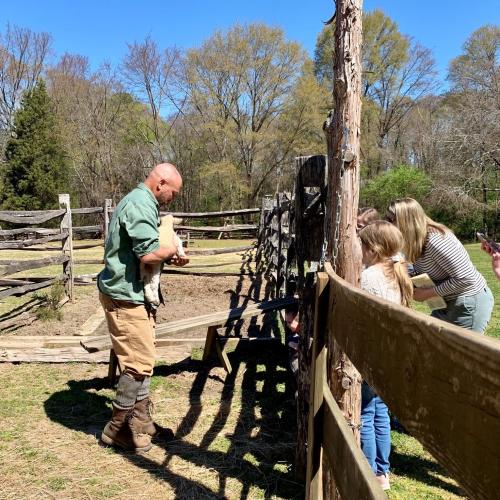
Kids are eager to pet the farm animals
As you learned, the Historic Latta Plantation is a key component to what the local area is about. They are equipped with a welcoming staff that enhance your visit to the historical home. We encourage you to donate any amount you're able to in order to help keep Latta moving forward. If you have any photos of a trip you've taken to the historical site, please share on social media and tag us @VisitLakeNorman!




